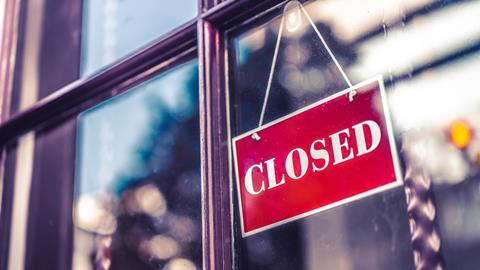Administrators have been able to claw back less than 2% of the work in progress of a failed claims company, a new report has revealed.
Insolvency specialists appointed following the collapse of north west firm Pure Legal had initially estimated that the ongoing claims could realise more than £30m. The firm’s directors had initially estimated the book value was around £45.5m when it went into administration in November 2021.
But an administrator’s progress report reveals that the vast majority of cases previously managed by Pure Legal have been closed and/or discontinued. In total, £491,000 has been recovered from work that was being handled at the time of administration. Around £84,000 of that has been recovered from case files that were transferred through a third party to its panel firms, while £44,500 has come from ongoing GDPR data breach claims.
The relative failure to secure proceeds from work in progress will be a blow to creditors. None of the firm’s lenders, collectively owed almost £11m, is likely to receive any distribution from the administration funds. It is ‘highly unlikely’ that there will be enough money to pay back the £524,000 owed to HM Revenue & Customs.
Unsecured creditors have made claims of almost £41m in total but will likely receive nothing back apart from a small amount in the prescribed part set aside.
Administrators say they have continued ‘extensive investigations’ into the company’s affairs which remain ongoing. Letters before action have been issued to third parties concerning events leading up to the administration, but the nature of these claims were not revealed.
Read more
In total, administrators from Kroll have claimed for time costs of £3.6m, representing 8,861 hours at an average hourly rate of £407. Expenses have now exceeded £5.4m, the majority of which has been paid.
Pure Legal was one of the biggest firms which relied on amassing thousands of claims for housing disrepair and cavity wall insulation. Several others operating similar models have also folded in the past four years as this work has not proved as profitable as had been hoped.
The firm and its demise was cited alongside SSB Law in last week’s Civil Justice Council report on costs. The CJC had been told these types of firms presented a risk to consumers who had been left with significant debt due to their liability for adverse costs and the fact that the ATE insurance that had been secured for them to cover such costs declined to pay out.
‘There is a real risk that they are examples of a much wider systemic problem,’ added the report. ‘That problem, put shortly, is that law firms have, through securing portfolio funding, developed high-risk and unstable business models that depend on unrealistically high levels of return.’
This article is now closed for comment.




























29 Readers' comments